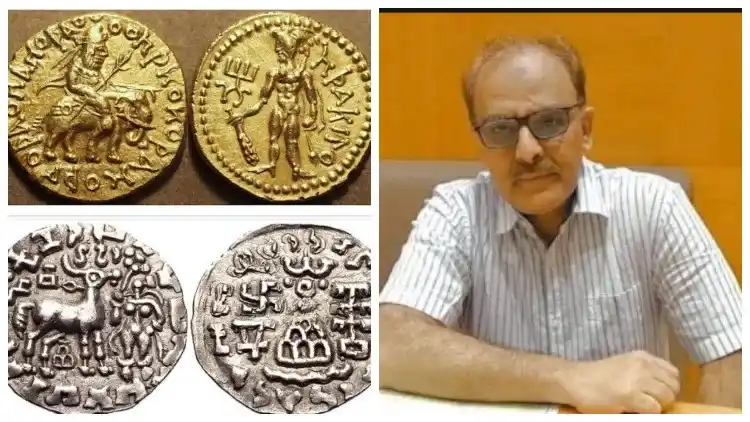
We all know about money and its value in our life. However, not many know about the study of money and that it’s related to history. The science of coins of how layers of the past history can be traced from the coins is called Numismatic. Manjit Thakur, deputy Editor, AwAaz-the voice spoke with Prof
There is a special kind of study for that and how we find out history from that. Manjit Thakur, Deputy editor, Awaz-the Voice spoke with Prof Danish Moin, assistant professor, Maulana Azad National Urdu University Hyderabad, who specializes in the science of coins about this rather least spoken branch of history and the scope for people who study it. Excerpts from the interview:
Please elaborate what is Numismatic. Not many people know about it and they don’t understand its scope. So tell the basic thing that how people can study it and become scientists in this way?
The first thing to know is that the study of coins is Numismatic. This is a branch of history, of dates. Every student who is associated with Numismatic, related to history, will have to study it. We have difference in Numismatic and Economics here. Most of the people studying Economics take about coins in terms of their monetary value; out outlook of the money is different. We look at the coins from the point of view of history. We use them as a source and an evidence to unravel history. Each coin has a lot of history hidden in it. Many things happen and you can't see history without evidence.
Numismatic is a history which gives you evidence and helps in writing history. As a source, there are many old books as well, there are documents and there are many mediums, there is also calligraphy in it. But there is a special specialization testimonial that we use exclusively for which Numismatic is available.
Especially those who are doing MA History, they are taught this as a separate branch of history. We teach for one particular paper; we also teach this science as part of Modern History in our university. But most universities teach it as part of ancient history.
If a student wants to have a career in this field, what are his options?
Only those who study history can take this as a career option. Suppose you are doing MA in History and want to specialize in Numismatic, you will get an advantage in specializing because there are very few students opting for this. So if you specialise in it, you can write books or do higher studies and you would be noticed as there are very few people into it. Also one must keep in mind that there are only a few jobs in this field. Also, a specialization in one of its branches is a must.
You can take Numismatic as part of economics, literature or history. If you studied it as part of medieval history, then your chances of getting a job as an assistant professor in a university are high. There are jobs for such people in museums as well. Many museums like the Lucknow Museum have the post of Numismatic. For this you have to be a post graduate in history. If you have done it and are knowledgeable, then you can get into a museum, be it in the National Museum in Delhi or Regional Museums.
The third place where you can get a job after studying this field is the Archaeological Survey of India (ASI) Numismatics jobs are there not only in ASI’s headquarters but also in its regional offices.
Actually, when you (ASI) are digging you end up excavating many things. Coins are also among the excavations. So they need an expert who can tell them about the old coin; its origins, importance etc. Also what is written on it and what is the information that it stores. A Numismatic can unravel all this.
There are hardly any museums in India which do not have a collection of coins.(To be continued)
